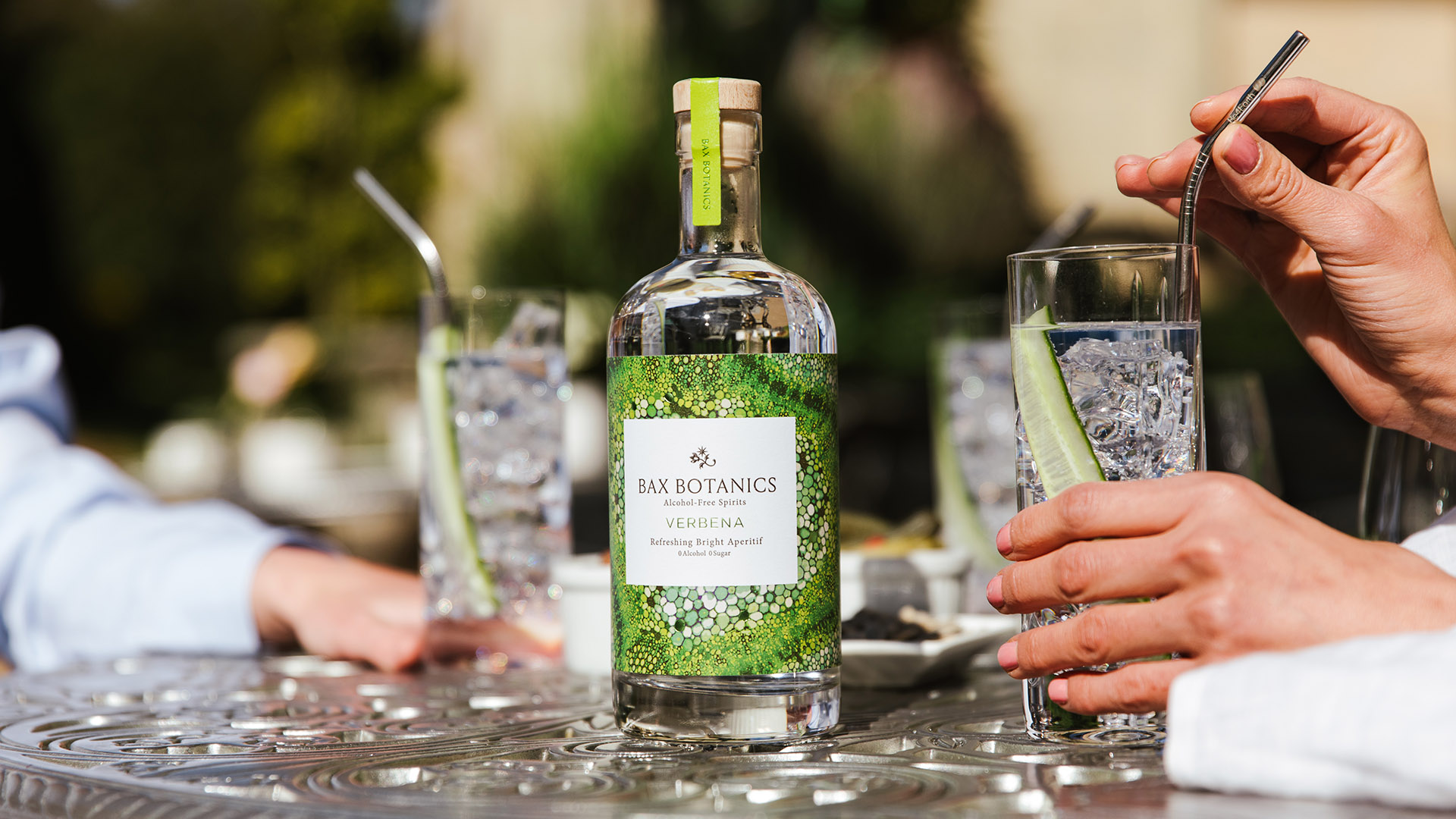Consumers are increasingly opting for non-alcoholic options when it comes to taking a tipple. The International Wine and Spirit Research (IWSR) estimates that the volume of global sales of non-alcohol and low alcohol beverages will increase by 31 per cent by 2024. According to Chris and Rose Bax, the founders of Bax Botanics, going alcohol-free has become a mainstream phenomenon in recent years.
Bax Botanics produces non-alcoholic spirits distilled from herbs, roots, flowers and berries. Much can be learned from the way the company has implemented sustainable practices in its business development from the get-go. From organic herbs to reusable bottles, the principles of responsible growth and circular economy are at the heart of Bax Botanics.
The Baxes have over 30 years of experience teaching and consulting in the food industry. I sat down with Chris Bax to discuss the trend of alcohol-free spirits at the UPM Raflatac sponsored Wine & Spirits Virtual Fair 2021, which took place in June.

Why go alcohol-free?
Choosing alcohol-free spirits, for example, on weekdays or before getting behind the wheel, has begun to make sense to consumers, says Bax. Likewise, people seem to prefer the ‘no alcohol’ to the ’low alcohol’ category since there is no ambiguity about how much alcohol a beverage contains.
Age is another factor driving consumers’ preference for no- or low-alcohol spirits. Younger people turn to alcohol-free drinks due to fitness and health reasons, but also for a sense of control, Bax explains. For many, modern life can seem impossible to control. Nevertheless, we can still have control over what we put into our bodies and therefore enjoy the resulting health benefits.
Another niche for non-alcoholic spirits is global exports to customers who prefer non-alcoholic drinks due to cultural or religious reasons. At present, Bax Botanics also focuses on exports.
Sustainability in everything
The first principle for Bax when starting the business was the ability to base it firmly on sustainability. Bax Botanics bottles are designed so they can be repurposed for further use, and the outer packaging is recycled cardboard. In the distillery, water and energy usage is minimized, and everything is recycled. If everybody takes small steps toward sustainability, they will eventually have a huge impact, Bax believes.
Since UPM Raflatac shares Bax Botanics’ principle of emphasizing sustainability and the circular economy, the collaboration between both firms felt natural. Bax Botanics has used UPM Raflatac’s stock to print beautiful spirits labels that are made from natural fibre-based pulp, which is in turn derived from sugar cane waste.
UPM Raflatac has published a new selection guide for wine, spirits and beverage end-use. The guide allows users to select the relevant materials to meet their requirements and to see how sustainability is reflected in production.
Download the Label Material Selection Guide for Wine, Spirits and Craft Beverage »